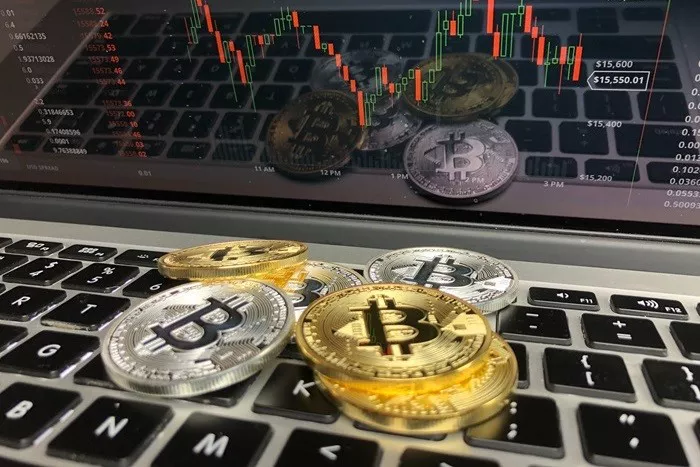Cryptocurrency, with its decentralized and innovative nature, has revolutionized the financial world. However, with great power comes great responsibility. The security of your digital assets is paramount, and it begins with understanding what information should be kept private. Sharing certain details can lead to irreversible losses, making it crucial to know what must never be disclosed.
Understanding Cryptocurrency Security
Cryptocurrency security is based on cryptographic principles that protect your assets and transactions. Unlike traditional financial systems, cryptocurrencies do not rely on central authorities like banks. Instead, they use decentralized networks where transactions are recorded on a public ledger called a blockchain. While this decentralization provides several advantages, it also places the burden of security squarely on the user.
The Importance of Private Information in Cryptocurrency
In the world of cryptocurrencies, your private information is the key to your wealth. Unlike a bank account, where forgetting a password might result in a simple recovery process, losing control of certain information in cryptocurrency can mean permanent loss of funds. Therefore, understanding what needs to remain confidential is vital.
Critical Information to Keep Secure
Several pieces of information are crucial for maintaining the security of your cryptocurrency. Sharing any of these can lead to unauthorized access and potential theft of your digital assets. Below are the key elements that must never be shared.
1. Private Keys
What is a Private Key?
A private key is a string of alphanumeric characters generated when you create a cryptocurrency wallet. It acts as a digital signature that allows you to access your cryptocurrency and authorize transactions. The private key is unique to your wallet and is mathematically linked to your public key, which others can use to send you cryptocurrency.
Why Should It Never Be Shared?
The private key is the most critical piece of information in cryptocurrency security. If someone gains access to your private key, they can control your entire cryptocurrency holdings. Sharing your private key is equivalent to giving someone full access to your bank account. Once a private key is compromised, the loss is permanent, as transactions on the blockchain are irreversible.
How to Keep Your Private Key Secure
Store Offline: Consider using cold storage methods, such as hardware wallets, to store your private key offline.
Use Encryption: If storing your private key digitally, ensure it is encrypted and stored in a secure location.
Backup Securely: Create a secure backup of your private key and store it in a different location from the original.
2. Seed Phrase (Recovery Phrase)
What is a Seed Phrase?
A seed phrase, also known as a recovery phrase, is a sequence of words generated when you create a cryptocurrency wallet. This phrase can be used to restore access to your wallet if you lose your private key. It typically consists of 12, 18, or 24 words and is generated using a specific algorithm that ensures its uniqueness.
Why Should It Never Be Shared?
The seed phrase is essentially a master key to your wallet. If someone else gains access to your seed phrase, they can regenerate your private keys and take control of your cryptocurrency. Sharing your seed phrase is akin to handing over the keys to your digital safe. Like the private key, once compromised, the damage cannot be undone.
How to Keep Your Seed Phrase Secure
Write It Down: Write your seed phrase on paper and store it in a safe place, such as a secure deposit box.
Avoid Digital Storage: Refrain from storing your seed phrase digitally, as it can be vulnerable to hacking.
Use a Fireproof Safe: For added security, store your written seed phrase in a fireproof and waterproof safe.
3. Two-Factor Authentication (2FA) Backup Codes
What are 2FA Backup Codes?
Two-Factor Authentication (2FA) adds an extra layer of security to your cryptocurrency accounts by requiring a second form of verification, usually a code sent to your phone or generated by an authentication app. Backup codes are provided when you enable 2FA, allowing you to access your account if you lose access to your primary 2FA method.
Why Should They Never Be Shared?
2FA backup codes are a fail-safe mechanism that allows access to your account even if the primary 2FA method is compromised. If someone else obtains these codes, they can bypass 2FA and gain unauthorized access to your account. Sharing these codes can result in losing control over your account and the assets within it.
How to Keep Your 2FA Backup Codes Secure
Store Offline: Write down your 2FA backup codes and store them in a secure, offline location.
Avoid Storing with Passwords: Do not store your backup codes alongside your account passwords to minimize the risk of both being compromised simultaneously.
4. Passwords for Cryptocurrency Accounts
Why Passwords are Critical
Passwords are the first line of defense for your cryptocurrency accounts. They protect your exchange accounts, wallet apps, and other platforms where you manage your digital assets. A strong, unique password is essential for keeping your accounts secure.
Why Should They Never Be Shared?
Sharing your passwords with anyone, even trusted individuals, can put your cryptocurrency at risk. If a password falls into the wrong hands, your accounts can be accessed and drained of their assets. Furthermore, if you use the same password across multiple platforms, a single breach can lead to the compromise of all your accounts.
How to Keep Your Passwords Secure
Use a Password Manager: A password manager can generate and store strong, unique passwords for each of your accounts.
Enable 2FA: Always enable Two-Factor Authentication for an added layer of security.
Change Regularly: Update your passwords regularly and immediately change them if you suspect a breach.
5. Transaction Details
What Transaction Details Should be Kept Private?
While cryptocurrency transactions are recorded on a public blockchain, certain transaction details should remain confidential. This includes the amount, the receiving address, and any accompanying notes or messages. Sharing too much information about your transactions can make you a target for attacks.
Why Should They Never Be Shared?
Publicly sharing transaction details can expose you to risks such as phishing attacks, where malicious actors attempt to trick you into revealing more sensitive information. Additionally, sharing your transaction history can give others insights into your financial behavior, making you vulnerable to targeted attacks.
How to Keep Transaction Details Secure
Share Selectively: Only share transaction details with trusted parties and only when necessary.
Avoid Public Forums: Never share transaction details in public forums or on social media.
Use Privacy Coins: Consider using privacy-focused cryptocurrencies like Monero or Zcash to enhance transaction anonymity.
See Also: What Is the Best Bitcoin to Buy?
Common Mistakes to Avoid in Cryptocurrency Security
Despite the importance of keeping private information secure, many users still make mistakes that can lead to breaches. Understanding these common pitfalls can help you avoid them and protect your digital assets.
1. Falling for Phishing Scams
Phishing scams are a common way for hackers to gain access to your private keys, passwords, or seed phrases. These scams often involve fake websites or emails that mimic legitimate services, tricking users into entering their sensitive information.
How to Avoid Phishing Scams
Verify URLs: Always double-check the URL before entering your information on a website.
Be Skeptical of Emails: Never click on links or download attachments from suspicious emails.
Use Bookmarking: Bookmark the official websites of your cryptocurrency services to avoid accidentally visiting fake ones.
2. Using Public Wi-Fi for Cryptocurrency Transactions
Public Wi-Fi networks are inherently insecure and can be easily compromised by hackers. Conducting cryptocurrency transactions over public Wi-Fi can expose your private keys or passwords to malicious actors.
How to Securely Use the Internet for Cryptocurrency
Use a VPN: A Virtual Private Network (VPN) can encrypt your internet connection, making it more difficult for hackers to intercept your data.
Stick to Mobile Data: When possible, use mobile data instead of public Wi-Fi for sensitive transactions.
Avoid Transactions on Public Wi-Fi: If you must use public Wi-Fi, avoid conducting cryptocurrency transactions altogether.
3. Overlooking Software Updates
Outdated software can have vulnerabilities that are easily exploited by hackers. This includes your cryptocurrency wallet, operating system, and any applications related to cryptocurrency management.
How to Keep Your Software Secure
Enable Automatic Updates: Ensure that your wallet and operating system are set to update automatically.
Check for Updates Regularly: Regularly check for and install updates for all cryptocurrency-related software.
Use Reputable Software: Only use wallet software and applications from trusted, well-known developers.
The Role of Hardware Wallets in Cryptocurrency Security
Hardware wallets are physical devices designed to store your private keys offline, providing an additional layer of security. Unlike software wallets, which are susceptible to online threats, hardware wallets keep your private keys isolated from the internet.
Why Hardware Wallets are Secure
Offline Storage: Since hardware wallets store your private keys offline, they are immune to online hacking attempts.
Tamper-Proof: Most hardware wallets have tamper-evident seals and built-in security measures to prevent unauthorized access.
Backup and Recovery: Hardware wallets often come with a seed phrase for recovery, which should be stored securely and never shared.
Best Practices for Using Hardware Wallets
Purchase from Reputable Sources: Always buy hardware wallets from the manufacturer or authorized dealers to avoid counterfeit products.
Keep Firmware Updated: Regularly update the firmware of your hardware wallet to ensure it has the latest security features.
Secure Your Recovery Phrase: Store the recovery phrase provided by the hardware wallet in a secure, offline location.
Conclusion
Cryptocurrency offers unprecedented freedom and control over your financial assets, but this comes with the responsibility of ensuring their security. To protect your digital wealth, it is essential to never share your private key, seed phrase, 2FA backup codes, passwords, or sensitive transaction details. By following best practices and staying vigilant against common threats, you can keep your cryptocurrency secure and enjoy the benefits of this innovative financial technology.
[inline_related_posts title=”You Might Be Interested In” title_align=”left” style=”list” number=”3″ align=”none” ids=”2948,2951,2954″ by=”categories” orderby=”rand” order=”DESC” hide_thumb=”no” thumb_right=”no” views=”no” date=”yes” grid_columns=”2″ post_type=”” tax=””]


























